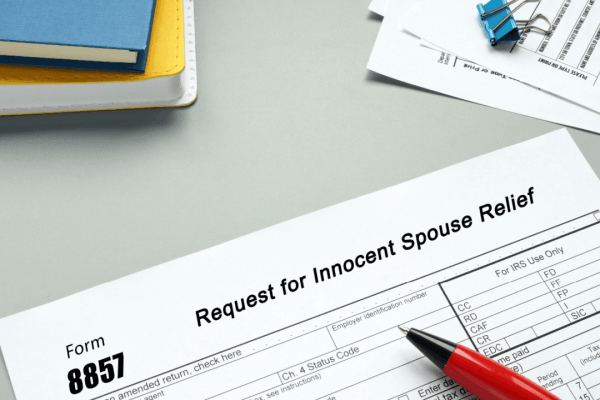
Settle My Tax Debt: IRS Programs That Work
How Can I Settle My Tax Debt with the IRS?
If you’re asking, “How can I settle my tax debt?”—you’re not alone. Every year, many Americans struggle with unpaid taxes and look for legitimate ways to reduce or eliminate their debt. Fortunately, the IRS provides several programs that allow qualifying taxpayers to settle their debts under specific conditions.
What Does It Mean to Settle a Tax Debt?
Settling tax debt means reaching an agreement with the IRS to pay less than what you owe or to create an affordable payment plan. This can help you avoid aggressive collections like wage garnishments or bank levies.
Definition of Tax Debt Settlement
Tax settlement allows the IRS to accept a lower amount than the full balance due. It’s not guaranteed—you must meet certain income and asset limits.
Who Should Consider Settling Their Debt?
You should consider IRS tax debt settlement if:
- You can’t pay the full amount without financial hardship
- You’ve accrued penalties and interest
- You’re facing IRS collection actions like tax liens or levies
If you’re unsure where to start, consider a free tax case review to get personalized guidance.
Common IRS Programs That Help Settle Tax Debt
The IRS has structured programs for individuals who want to settle their tax debt. Each program has unique qualifications and benefits.
Offer in Compromise (OIC)
This is the most well-known way to settle for less than you owe. It requires that you prove to the IRS that paying in full would create an undue financial burden. If accepted, the IRS may agree to adjust a portion of your tax debt.
Installment Agreements
If you don’t qualify for an OIC, you may still settle your tax debt through an installment plan. These plans break down your tax liability into manageable monthly payments.
Currently Not Collectible (CNC)
If you truly cannot pay anything at all, CNC status might apply. The IRS temporarily pause collections until your financial condition improves, although penalties and interest will continue to accrue.
How to Apply for Tax Debt Settlement
Getting approved to settle tax debt with the IRS requires proper paperwork and honest financial disclosures.
Gather Financial Documentation
You’ll need to provide:
- Proof of income (pay stubs, Social Security benefits, etc.)
- Records of monthly expenses
- Asset details (vehicles, bank accounts, etc.)
Submit Forms and Wait for Review
To apply for an Offer in Compromise, you’ll use IRS Form 656 along with Form 433-A (Collection Information Statement). After submission, the IRS will evaluate your eligibility based on your overall ability to pay.
For form instructions, visit the IRS Form 656 and 433-A guidance page.
Mistakes to Avoid When Trying to Settle My Tax Debt
A successful tax settlement relies on accuracy and compliance. Avoid these common mistakes:
Ignoring IRS Notices
Never ignore letters from the IRS. Delays can lead to wage garnishments or bank levies.
Underreporting Income
Be completely honest on IRS forms. Any misinformation can disqualify your settlement request.
When to Get Professional Help
Navigating tax relief programs can be confusing. Hiring a tax professional can help you understand IRS processes and requirements.
Tax Relief Firms and Attorneys
A licensed tax relief company or tax attorney can:
- Help you understand which program best fits your situation
- Assist with completing the correct forms
- Communicate with the IRS on your behalf
Explore available resources and legal support on our legal help for tax debt page.
Choosing the Right Path to Reduce What You Owe
If you want to settle your tax debt, it’s important to choose the program that best aligns with your finances. Whether it’s an Offer in Compromise, an installment plan, or CNC status, taking action is better than letting the debt grow.
Settle Your IRS Tax Debt with Expert Guidance
Looking to settle your tax debt the right way? The sooner you explore your options, the more control you’ll have. With professional help and the right documentation, you can explore ways to address your situation and understand available collection processes.
Contact us connects you with experienced tax professionals who understand IRS settlement programs. Start learning about your IRS options today to better understand your next steps.
Frequently Asked Questions (FAQs)
1. Can I really settle my tax debt for less than I owe?
Yes, but only through specific programs like an Offer in Compromise—and only if you qualify.
2. How long does it take to settle tax debt?
Depending on the program, it may take several weeks to several months.
3. Will settling my tax debt affect my credit?
The IRS doesn’t report tax debts to credit bureaus, but tax liens can impact your credit if filed.
4. What if I can’t make any payments at all?
You may qualify for Currently Not Collectible status, which halts collections temporarily.
5. Is professional help necessary?
It’s not required, but hiring a tax relief expert can significantly increase your chances of success.
Key Takeaways
- Settling my tax debt is possible through IRS programs like OIC, installment plans, or CNC status
- You must meet strict eligibility criteria and provide full financial disclosure
- IRS collections can be paused, but interest and penalties still accrue
- Avoid mistakes like ignoring IRS letters or underreporting income
- Professional help can improve your chances of reaching a favorable resolution
Free Tax Case Review
If you are struggling with tax debt or have received a letter from the IRS complete the form below.Advertising. This site is a marketing service and does not provide legal or tax advice. Submitting information does not create an attorney-client, tax professional-client, or any other advisory relationship. Results are not guaranteed. A list of participating attorneys, tax firms, and tax providers is available here.
IRS Audit
You received an audit notice from the IRS
Tax Debt Relief
You owe the IRS money and are looking for relief options
Wage Garnishment
The IRS is taking part of your wages to pay off your debt
Tax Lien
The IRS put a legal claim on your property
IRS Property Seizure
The IRS is going to take your property to pay down or pay off your tax debt
Penalty Abatement
You want to request to remove or reduce penalties assessed by IRS
Innocent Spouse Relief
Relief from joint tax debt caused by your spouse or former spouse
Tax Debt FAQ
Common facts, questions and answers about tax debt and tax debt reilef
Tax Debt Lawyer
A tax debt lawyer can help you with your tax debt problems
Recent Posts
- Who Is Eligible for Innocent Spouse Relief and How Does It Work?
- What is an Effective Tax Strategy for Married Couples
- What are the Proofs of Innocent Spouse Relief?
- What Form Do You Use for an Innocent Spouse? | Complete IRS Filing Guide
- What Are the Four Types of Innocent Spouse Relief? | Your Complete Guide



